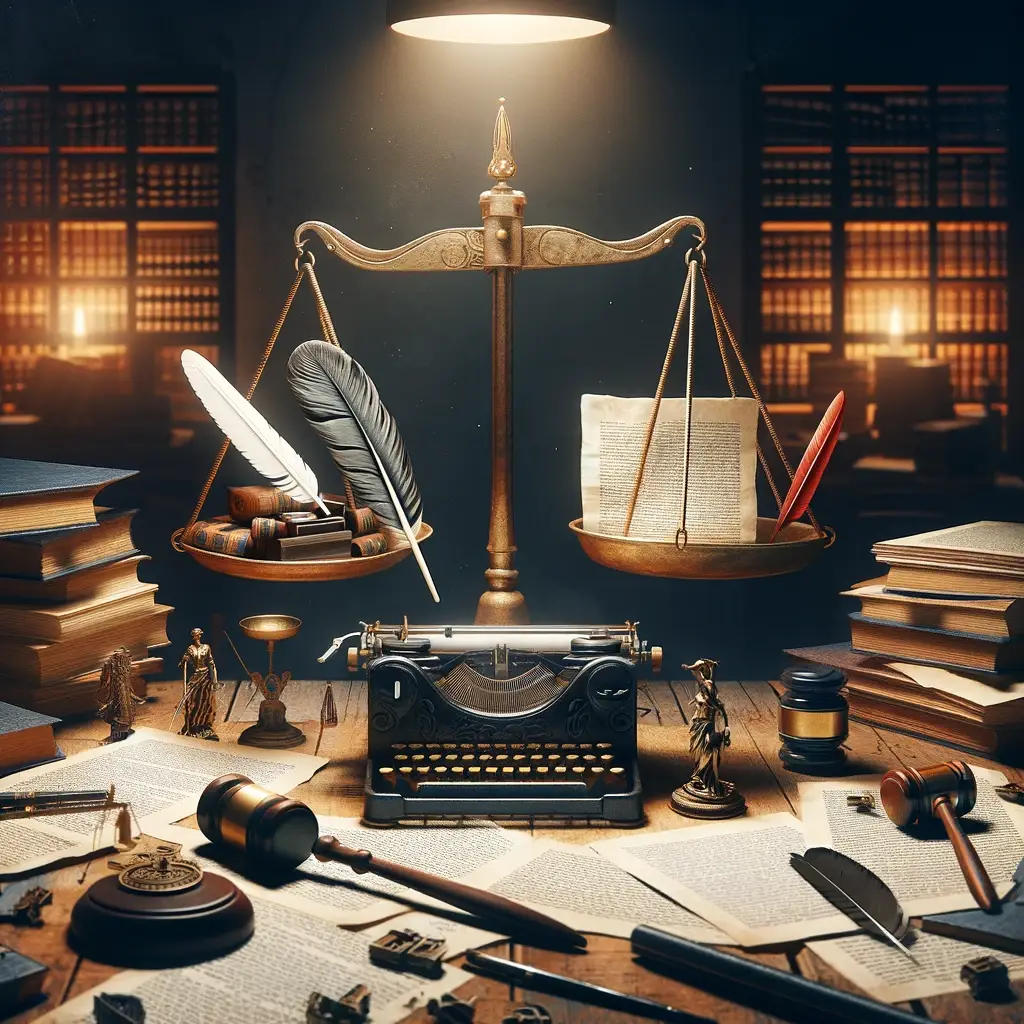Privacy

In the realm of creative writing, especially when penning memoirs and personal essays, navigating the intricate landscape of legal considerations is paramount. Writers often draw from personal experiences, weaving narratives that touch upon the lives of others, thereby entering a territory where the line between artistic expression and privacy rights blurs. The challenge lies in telling a compelling, truthful story without infringing on the privacy or reputation of the characters who populate these real-life tales. This section delves into the essential legal nuances that writers must consider, from the importance of altering character traits to avoid recognition to the critical need for evidence in substantiating claims, all aimed at safeguarding against potential lawsuits. Understanding these legal boundaries not only protects the writer but also upholds the integrity of the narrative, ensuring that the personal journey shared is as legally sound as it is emotionally resonant.
- Changing Character Traits and Names: When writing about real people, changing names might not be sufficient to avoid legal issues. Significant alterations to characters, such as changing professions or physical traits, are recommended to protect identities. It’s also beneficial to state in your author notes that changes have been made to protect identities.
- Use of Pseudonyms: Authors can consider using a pseudonym to further protect the identities of individuals mentioned in their works. While your author bio can remain truthful, it can also be succinct and mention the use of a pen name.
- Defamation and Evidence: Avoid making false statements presented as facts. If you’re making claims that could affect someone’s reputation, ensure you have evidence to back up your claims to avoid defamation allegations.
- Dialogue and Fictionalization: Be cautious with dialogue. While memoirists may reconstruct conversations, it’s wise to paraphrase or summarize to avoid disputes over exact words. Additionally, consider presenting your work as a novel to lessen legal risks, though this is not a foolproof solution.
- Right of Publicity: Be mindful not to use someone’s name, likeness, or characteristics for commercial purposes without permission, especially if they’re well-known, or use their persona for commercial gain. This includes avoiding unauthorized endorsements or implying an association that doesn’t exist.
- Consumer Fraud and Breach of Warranty: Fabricating stories or events in memoirs can lead to legal consequences, including class-action lawsuits from readers or breach of warranty claims from publishers. Honesty in recounting personal stories is crucial to avoid legal and reputational damage.
- Legal Precautions: Before publishing, consider the legal ramifications of how individuals are depicted, whether facts are public or private and whether events are newsworthy. Securing permissions and ensuring that your portrayal of real people and events aligns with legal standards can mitigate risks.
These guidelines emphasize the importance of balancing creative expression with legal and ethical considerations in writing. Ensuring you’ve taken the necessary precautions can protect you from potential legal issues while allowing you to share your story authentically and responsibly.
QUESTIONS FOR DISCUSSION
- Navigating Privacy and Truth: How should writers navigate the fine line between portraying the truth and respecting privacy when recounting personal stories involving others in their memoirs or essays?
- Legal Ramifications: What are the potential legal ramifications for writers who inadvertently or intentionally breach privacy or defamation laws in their creative works? How can they safeguard against such risks?
- Ethical Considerations vs. Artistic Expression: To what extent should ethical considerations about privacy influence a writer’s artistic expression? Can there be a compromise between maintaining artistic integrity and adhering to legal and ethical standards?
- Case Studies: Are there notable case studies or legal precedents that memoirists and essayists can learn from to avoid legal pitfalls while writing about real people and events?
- Protective Strategies for Writers: What strategies can writers employ to protect themselves from legal issues while still telling their story authentically? How effective are these strategies in practice?
These questions are designed to stimulate in-depth discussion and reflection on the challenges and responsibilities of writing about real-life experiences, especially when those experiences intersect with the lives of others.
© 2024, wcadmin. All rights reserved, Writers Critique, LLC Unless otherwise noted, all posts remain copyright of their respective authors.




